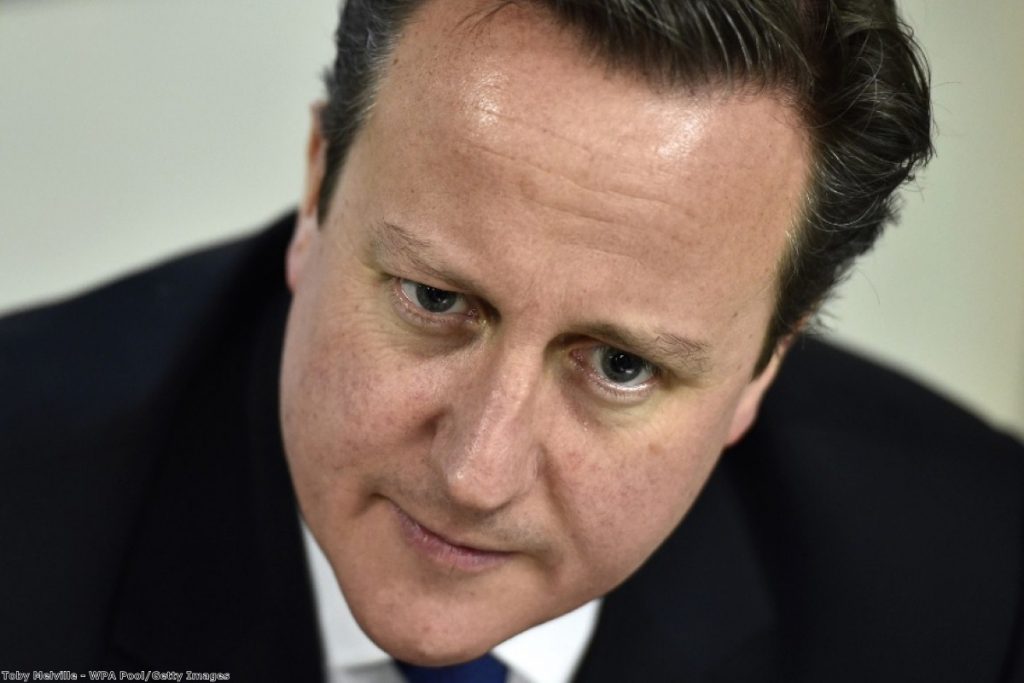The Tories’ anti-Scottish rhetoric is dangerous. It could also work
The Conservative party have given up on Scotland. That's the inevitable conclusion from their campaign this week which has focused almost exclusively on ramping up English fears about the rise of the SNP.
In an interview with Andrew Marr on Sunday, David Cameron said the prospect of SNP MPs having any influence on the next government was "frightening".
"This would be the first time in our history that a group of nationalists from one part of our country would be involved in altering the direction of the government of our country and I think that is a frightening prospect," he said.
This is a very strange message to send to Scottish voters. The impression given is that the prime minister of the United Kingdom is frightened by the prospect of Scots having any influence over the government which rules them. Not only is he frightened, but he wants to prevent it happening at all costs. As far as Cameron is concerned, if you're Scottish and you elect a non-unionist MP, then your voice must not be heard.


Cameron's intervention was followed by a series of headlines accusing the SNP of trying to "blackmail" and hold the rest of the UK to "ransom" with accusations that the SNP are trying to help Labour "steal" power from the Tories.
If that message wasn't clear enough, Cameron also announced this week that a Conservative government would carry out an annual review of measures taken by the Scottish government to make sure they don't have an "adverse impact" on the rest of the UK.
The purpose of these two interventions could not be clearer. They were both designed to create and inflame anti-Scottish feeling among the English in order to stay in power.
It is an ugly and divisive strategy. But will it actually work?
Well new polling out today suggests that it just might. Pollsters YouGov asked voters a series of questions on how they would feel about the SNP having any influence over the formation and running of the UK government.
They found that for the overwhelming majority of people, it would make no difference. About a third of voters will back the Tories anyway so cannot be swayed. A further chunk are worried but would still rather have the SNP influencing the government than see the Conservatives back in power. A further chunk would actually like to see the SNP have some influence, while a further chunk aren't bothered either way.
Once you take all those people away, you are left with just eight per cent of people who are not already voting Tory and for whom the issue has at least the potential to swing their vote. This small chunk of the electorate are overwhelmingly Ukip voters, Lib Dems and non-voters.
Quite how many of these (if any) actually will vote Conservative because of this issue remains to be seen. Of the polls we have seen this week, most have actually seen Ukip's vote rise slightly while there has been no significant change in headline voting intentions so far.
However this new poll suggests that this could change if the Tories continue to relentlessly push this message over the next two weeks.
But what is most revealing about this Tory campaign is quite how narrow it has now become. Any attempt to win over Labour voters, or voters in the North or Scotland appears to have been abandoned. Any attempt to debate the issues has been all but thrown aside.
Instead we are seeing a narrow drive to scare just enough Ukip voters about invading Scots, in order to nudge David Cameron over the line.
The price of such a victory could be large. As several senior Tory figures have warned over the past few days, Cameron's rhetoric risks further straining relations between Scotland and England and could even put the future of the Union at risk.
However none of this seems to worry Cameron right now. As Tory minister David Gauke admitted to the Daily Politics yesterday, with just one Conservative MP left north of the border, keeping Scotand in the Union "isn't particularly in the interests of the Conservative party," any more.
All that matters now is keeping Labour out of power and if that means giving up on Scotland then so be it.

